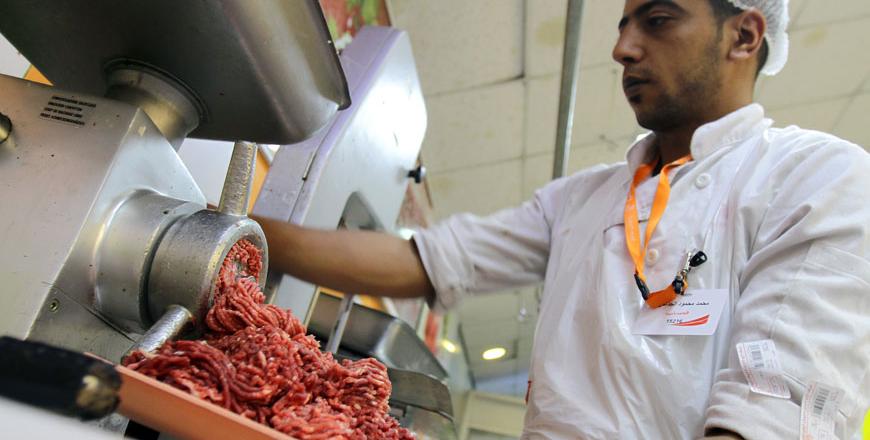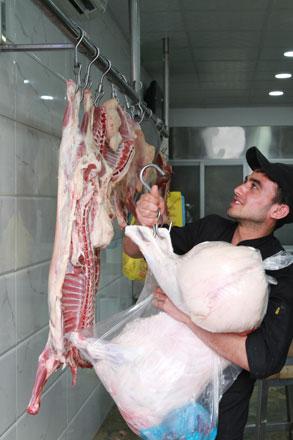You are here
‘More than enough’ meat available in market — ministry
By JT - Jun 24,2015 - Last updated at Jun 24,2015

Local and imported meat is available in the local market in sufficient quantities, according to the Industry, Trade and Supply Ministry (Photo by Hassan Tamimi)
AMMAN — The Industry, Trade and Supply Ministry confirmed on Wednesday that local and imported meat is available in the local market in quantities that more than meet the needs of consumers.
In a statement, the ministry said it coordinates with the Aqaba Special Economic Zone Authority (ASEZA) and the Jordan Customs Department to accelerate import movement to maintain sufficient quantities.
During the past five days, 748 tonnes of imported beef, 737 tonnes of mutton, and 1,500 tonnes of poultry entered the Kingdom, according to the statement, which cited data from the Aqaba customs department.
The daily tracking of meat prices showed that imported Sudanese mutton cost between JD6.5 to JD7 per kilogramme and a kilo of Romanian lamb costs between JD7 to JD7.5, while imported beef is sold for between JD5 and JD6 per kilo, and a kilo of local veal costs JD8, according to the statement.
The Aqaba Container Terminal is working at 90 per cent of its capacity, with an average of 800 containers entering the Kingdom daily, ASEZA said earlier this week.
Trade Ministry Spokesperson Yanal Barmawi said Tuesday that “large” quantities of meat have entered the market, including a significant amount daily from the port.
Consumers tend to buy more meat and other food items in Ramadan, the ninth month of the Islamic lunar calendar, due to a change in eating patterns as Muslims abstain from food and beverages from dawn until after sunset.
Related Articles
AMMAN — Residents of Amman are leaving the capital to buy their fresh red meat, as the capital's butchers charge up to 50 per cent more than
PARIS — Bacon, hot dogs and cold cuts are under fire: The World Health Organisation (WHO) threw its global weight behind years of experts’ w
AMMAN — There is a “surplus” of meat available during the holy month of Ramadan, with around 450,000 local and 220,000 imported head of shee













